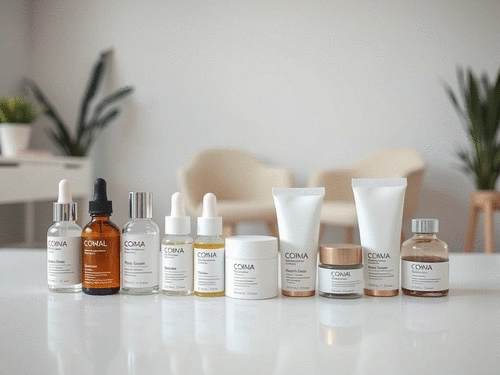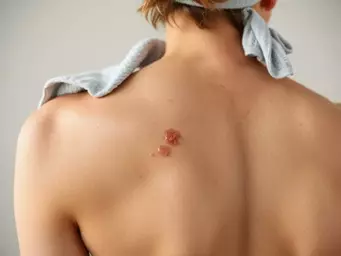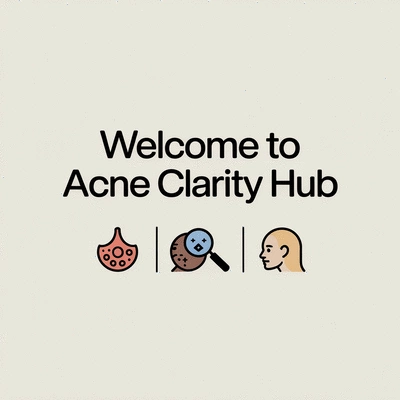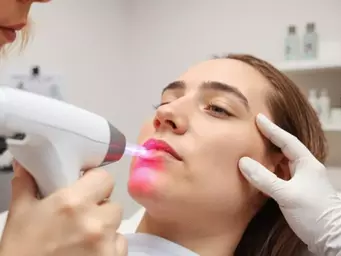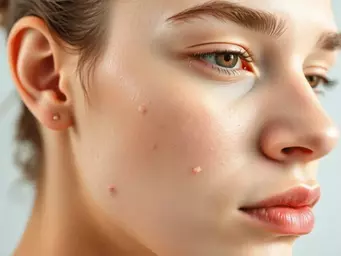As we step into 2025, the landscape of prescription acne treatments is changing rapidly, with promising new options for those struggling with acne. Are you ready to learn how to navigate these advancements effectively?
What You Will Learn
- The rise of personalized medicine offers tailored treatments for individual skin types and conditions.
- Combination therapies enhance treatment efficacy and reduce the risk of resistance.
- Novel ingredients are being introduced, promising better outcomes with fewer side effects.
- Telemedicine increases access to dermatologists, allowing for timely and convenient treatment plans.
- Consulting a dermatologist is crucial for getting professional guidance tailored to your unique skin needs.
- Setting realistic expectations is essential, as effective acne treatment takes time and patience.
- Long-term maintenance strategies, including consistent skincare routines, can help prevent future breakouts.
- Healthy lifestyle habits, such as a balanced diet and stress management, can further improve skin health.
Acne Treatment Timeline & Expectations
Understanding when to expect results from various acne treatments and the importance of long-term maintenance.
When to Expect Initial Results
Topical Treatments: 4-6 weeks
Oral Medications: 6-12 weeks
Isotretinoin: Initial in 1 month, full over several months
Long-Term Maintenance Strategies
Continued Topical Retinoids: Maintain skin clarity.
Consistent Skincare Routine: Gentle, non-comedogenic regimen.
Regular Dermatologist Visits: Reassess and adjust treatment.
Key Healthy Skin Habits & Lifestyle Changes
Balanced Diet
Hydration
Stress Management
Regular Exercise
Understanding Prescription Acne Treatments in 2025
As we move into 2025, the world of prescription acne treatments is evolving rapidly. This is great news for those of us who have battled acne, as new options continue to emerge, backed by the latest scientific research. With more effective treatments at our disposal, it’s crucial to stay updated about these changes and how they can fit into your skincare routine.
In my experience as a board-certified dermatologist, I’ve seen firsthand how advancements in acne treatments can transform lives. The key is understanding these options and making informed choices that align with your unique skin needs. Let's explore this evolving landscape together!
The Evolving Landscape of Acne Treatments
The landscape of acne treatments has changed significantly over the years, and 2025 is no exception. New formulations and delivery methods offer improved effectiveness and better tolerability. For a comprehensive overview of acne treatment options, you can refer to the NHS guide on acne treatments. Here are some of the notable trends:
- Personalized Medicine: Treatments are becoming more tailored to individual skin types and conditions. The field of personalized medicine is making significant strides in dermatology, as highlighted by recent research on advancements in acne treatment.
- Combination Therapies: Using multiple agents can enhance treatment efficacy and minimize resistance.
- Novel Ingredients: New active ingredients are being introduced, promising better outcomes with fewer side effects.
- Telemedicine: Increased access to dermatologists via virtual consultations allows for timely and convenient treatment plans.
These trends reflect a greater understanding of what works best for acne-prone skin, allowing us to provide better care to our patients. At Acne Clarity Hub, we’re dedicated to distilling this information, so you can navigate your options with confidence. The year 2023 saw several significant developments in acne care, which set the stage for 2025, as discussed in Dermatology Times' 2023 review of acne advancements.
Why Dermatologist Recommendations Matter
While it may be tempting to self-diagnose or follow popular trends on social media, the importance of dermatologist recommendations cannot be overstated. As a dermatologist, I often encounter patients who have tried various treatments without professional guidance, leading to frustration and sometimes worsening their condition.

Here are a few reasons why consulting a dermatologist is vital:
- Expertise: Dermatologists have extensive training in skin health and can identify the underlying causes of your acne.
- Tailored Treatments: A dermatologist can prescribe treatments that are specifically suited to your skin type and acne severity.
- Monitoring Progress: Regular follow-ups ensure that any side effects are managed and treatment efficacy is assessed.
- Comprehensive Care: We can provide a holistic approach to your skincare, considering lifestyle factors that may affect your skin.
By seeking professional advice, you equip yourself with the knowledge and tools necessary to tackle acne effectively. Remember, each person's journey is unique, and personalized care can make all the difference!
Pro Tip
Did you know? Consistency is key when it comes to acne treatment. Establish a daily skincare routine that includes cleansing, moisturizing, and applying your prescribed treatments. Stick to it, and don’t be discouraged if you don’t see immediate results—patience often leads to long-lasting improvements!
Setting Realistic Expectations for Acne Treatment Outcomes
When embarking on your journey towards clearer skin, it’s vital to set realistic expectations for your acne treatment outcomes. Many people expect instant results, but the truth is that effective acne treatment takes time and patience. Typically, you may start noticing improvements within a few weeks, but full results can take several months. This is especially true for prescription treatments that work by gradually influencing skin cell turnover and reducing inflammation.
Regular follow-up appointments with your dermatologist are also essential. These check-ins allow us to monitor your progress and make adjustments to your treatment plan as necessary. We often recommend a follow-up visit after 6 to 8 weeks to assess how well the treatment is working and to tweak any aspects that might not be yielding the desired results.
When to Expect Results and Follow-Up Care
Understanding when to expect results can help manage your expectations. Here’s a general timeline for different treatment types:
- Topical treatments: Typically show improvements in 4 to 6 weeks.
- Oral medications: May take 6 to 12 weeks to see significant changes.
- Isotretinoin: Results can often be seen within the first month, but full clearance may take several months.
It's important to remember that everyone's skin responds differently to treatments. As you embark on this journey, keeping an open line of communication with your dermatologist is key. This way, we can work together to tailor your plan for success!
Frequently Asked Questions About Prescription Acne Treatments
Q1: What are the main trends in prescription acne treatments for 2025?
A1: Key trends include personalized medicine, where treatments are tailored to individual skin types, combination therapies for enhanced efficacy, the introduction of novel ingredients with fewer side effects, and increased access to dermatologists through telemedicine.
Q2: Why is it important to consult a dermatologist for acne treatment?
A2: Dermatologists offer expertise in diagnosing underlying causes, provide tailored treatment plans, monitor progress and manage side effects, and offer comprehensive care considering lifestyle factors. Professional guidance ensures effective and personalized treatment.
Q3: How long does it typically take to see results from prescription acne treatments?
A3: Initial results vary by treatment type: topical treatments show improvements in 4-6 weeks, oral medications in 6-12 weeks, and Isotretinoin can show initial results in 1 month with full clearance over several months. Patience and consistency are crucial.
Q4: What are effective long-term maintenance strategies after acne clearance?
A4: Long-term strategies include the continued use of topical retinoids, maintaining a consistent, gentle, non-comedogenic skincare routine, and scheduling regular dermatologist visits to assess and adjust treatment as needed.
Q5: What lifestyle changes can help prevent future acne breakouts?
A5: Healthy skin habits include a balanced diet rich in fruits, vegetables, and whole grains, adequate hydration, stress management techniques like yoga, and regular exercise to boost circulation and promote overall skin health.
Long-Term Maintenance Strategies After Acne Clearance
Once you've achieved clearer skin, maintaining those results is crucial! At Acne Clarity Hub, I emphasize the importance of long-term maintenance strategies to prevent future breakouts. Here are some effective practices to consider:
- Continued use of topical retinoids: Keeping up with retinoid use can help maintain skin clarity.
- Consistent skincare routine: Stick to a gentle, non-comedogenic skincare regimen tailored to your skin type.
- Regular dermatologist visits: Schedule periodic check-ins to reassess your skin and make any necessary adjustments.
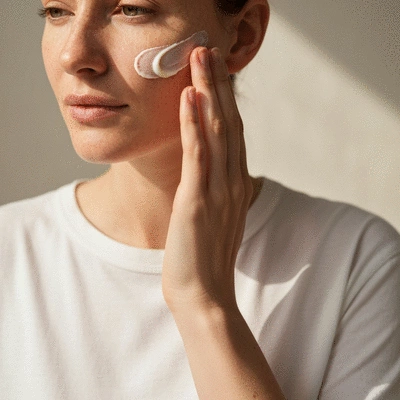
In my experience, patients who maintain a proactive approach to skincare are more likely to enjoy lasting results. So, let’s continue working together to keep that beautiful skin clear!
Healthy Skin Habits: Lifestyle Changes for Acne Prevention
In addition to your treatment plan, adopting healthy skin habits can further reduce the likelihood of future breakouts. Here are some lifestyle changes that can support your skin’s health:
- Balanced diet: Incorporate plenty of fruits, vegetables, and whole grains while reducing sugar and processed foods.
- Hydration: Drink plenty of water to keep your skin hydrated and help flush out toxins.
- Stress management: Incorporate relaxation techniques like yoga or mindfulness to help mitigate stress-related breakouts.
- Regular exercise: Physical activity boosts circulation and promotes healthy skin.
By making these changes, you're not just supporting your skin's health—you're investing in your overall well-being! Remember, every little step counts, and I’m here to support you on your journey to achieving healthy, radiant skin.
Recap of Key Points
Here is a quick recap of the important points discussed in the article:
- Personalized Medicine: Treatments are increasingly tailored to individual skin types and conditions.
- Combination Therapies: Using multiple agents can enhance efficacy and minimize resistance.
- Importance of Dermatologist Recommendations: Professional guidance is crucial for effective treatment and monitoring progress.
- Setting Realistic Expectations: Effective acne treatment takes time; improvements may take weeks or months.
- Long-Term Maintenance Strategies: Continued use of topical retinoids and consistent skincare routines are essential for preventing future breakouts.
- Healthy Skin Habits: A balanced diet, hydration, stress management, and regular exercise can support skin health.

